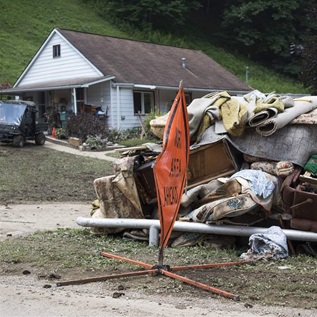New Collaborative Unites Organizations to Promote Evidence-Based Policymaking
The use of evidence and data to inform critical budget and policy decisions is on the rise. Lawmakers from across the country and representing every level of government are finding that evidence-based policymaking is an important tool to help ensure that limited public dollars are directed toward effective, cost-efficient programs that yield high returns on investment.
The Evidence-Based Policymaking Collaborative brings together researchers from a diverse group of organizations, including the American Enterprise Institute, the Brookings Institution, the Pew-MacArthur Results First Initiative, and the Urban Institute to promote resources to help support the growth of this work at all levels of government.
Over the next several months, the Collaborative will develop a series of briefs highlighting evidence-based policymaking tools, principles, and practices. Results First will begin by contributing two briefs. One will focus on cost-benefit analysis, summarizing its advantages, challenges, and uses in evidence-based policymaking. The second brief will focus on research clearinghouses, explaining the role that these entities have in identifying efficient and effective programs as well as what policymakers can do to support and utilize research in their decision-making processes.
Results First has long been a leader in the evidence-based policymaking field. Since 2011, the Results First Initiative has partnered with states and counties across the country to build their capacity to incorporate the use of evidence in the budgeting and policymaking processes. To date, 22 states and seven counties have worked with Results First to improve their ability to invest in proven programs and support research-informed decision-making.
In areas ranging from criminal justice to health and education, lawmakers are increasingly interested in funding what works, while at the same time scrutinizing programs that lack evidence of their effectiveness. The tools that will be promoted by the Collaborative will make this information more accessible and understandable, so that more and more policymakers might expect and demand evidence when making decisions about what programs to fund and which policies to support.
You can follow the work of the Evidence-Based Policymaking Collaborative at www.evidencecollaborative.org.
Sara Dube is the project director and Torey Silloway is the research manager for the Pew-MacArthur Results First Initiative.







